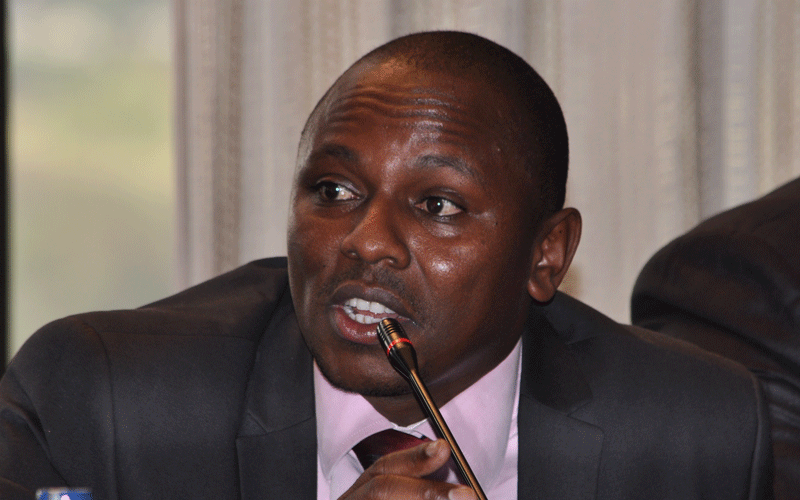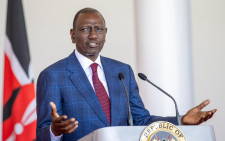State allocates Sh40b to anti-coronavirus pandemic

The government has allocated Sh40.3 billion towards mitigation of the the impact of the coronavirus pandemic.
In his presentation to the Budget and Appropriation Committee yesterday, National Treasury Cabinet Secretary Ukur Yatani said the Sh40.3 billion comprises Sh33.4 billion under the recurrent vote which includes office operations and Sh6.9 billion under the development vote.
“We have in this regard provided a total of Sh40.3 billion to mitigate against the impact of Covid-19 pandemic which comprise Sh33.4billion under recurrent and Sh6.9 billion under development vote,” he said.
Among the beneficiaries of the money include Sh1 billion for recruitment of health workers and Sh3.9 billion for Covid-19 related health response measures under the Ministry of Health.
Others are Sh200 million to the Interior Ministry for the security enforcement while the National Intelligence Service has received Sh1.5 billion.
Meawnwhile, the National Assembly’s Finance and National Planning Committee yesterday tabled the Supplementary Budget II in Parliament proposing a Sh74.39 billion reduction in expenditure amid claims that critical areas were allocated low funds.
The report presented to Parliament noted that health institutions at the forefront of the pandemic response such as referral hospitals and Kenya Medical Research Institute (Kemri) had been allocated very little additional resources.
The supplementary budget proposed Sh74.39 billion dip in spending saw the development budget go down by Sh98.73 billion.
Presenting the report before the house, Budget and Appropriations Committee chair Kimani Ichung’wa said some health facilities may soon require further funding.
“The facilities may be over stretched and will certainly require additional budgetary support in the next two months,” he said.
Ichung’wa also said one would have expected more significant support from the government to manufacturing especially as local industries endeavour to produce face masks, personal protective equipment (PPE) kits and other requisite materials.
According to the report, the bulk of the expenditure increment in the supplementary budget was apparently aimed at addressing the shortfall in personnel emoluments on account of job evaluation and collective bargaining agreements (CBAs) as well as for settling of pending bills.
“Speaker, it should be noted that in order to mitigate adverse impacts of the pandemic on the economy, the President pronounced a wide range of measures to stimulate economic activity; some of them relating to areas of taxation entailing reduced rates in the income tax, value-added tax and turnover tax,” he said.
Recruit workers
The committee noted that the implementation of the measures will deny the government approximately Sh122 billion leading to even lower revenue collection.
It, therefore, urged the national government to adjust its expenditure in order to reflect this new economic reality.
According to the supplementary budget II, the Ministry of Health has been allocated Sh1 billion for the recruitment of additional health workers while Sh2.6 billion external funding will go to Kenya Covid-19 emergency response project.
Another Sh9.994 billion will go to the Cash Transfer to Older Persons and the Orphans and Vulnerable Children project to cushion them against any impact of the coronavirus.
Big Four
The report said the number of the older persons (over 70 years) supported is expected to rise from 833, 000 to one million persons whereas the number of vulnerable children to be supported has been reduced from 393,000 to 390,500.
The committee noted that the expenditure adjustments in the supplementary budget II have resulted in a policy shift from the Big Four plan.
About Sh1.85 billion meant for the Universal Health Coverage (UHC) programme has been deducted and reallocated towards recruitment of additional health workers and enhanced social safety nets, among other needs.
Other funds chopped were from the seed money for the National Housing Development Fund.
“Indeed, resources allocated to Big Four projects under the State Department for Public Works have been slashed substantially,” the report said.
The committee noted that despite the austerity measures, it was critical for the policy agenda of the budget to continue being reflected otherwise the budgeting process might lose credibility.













